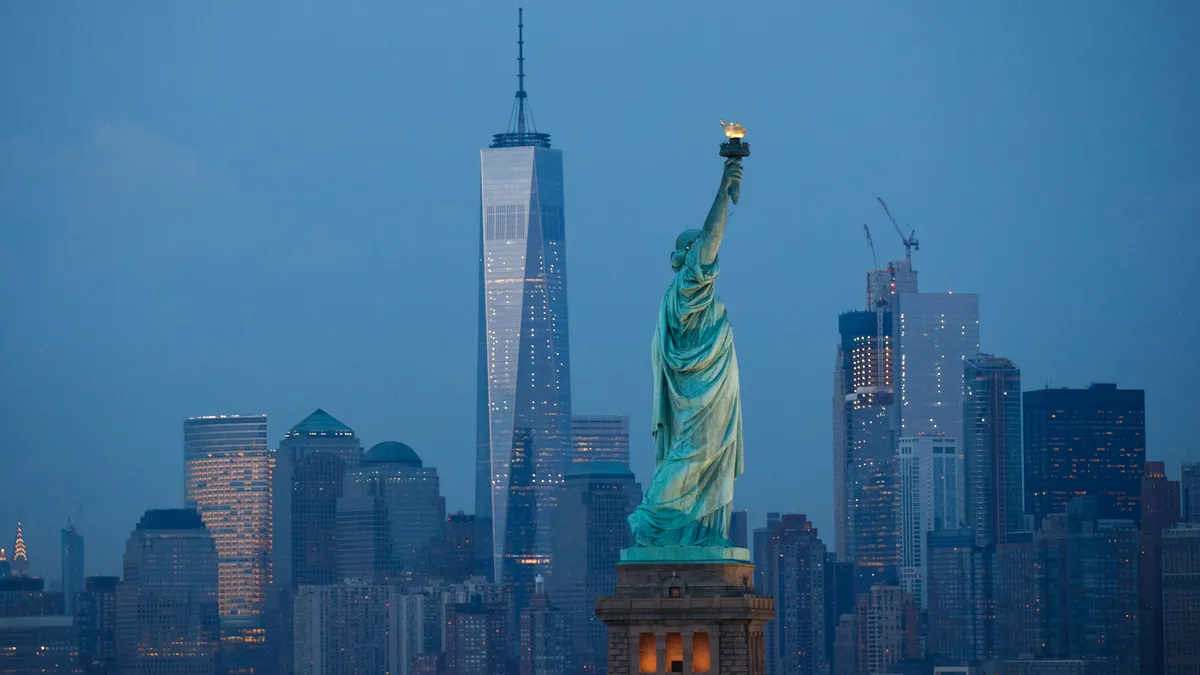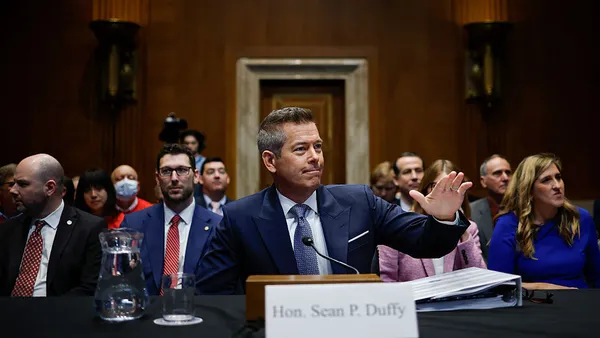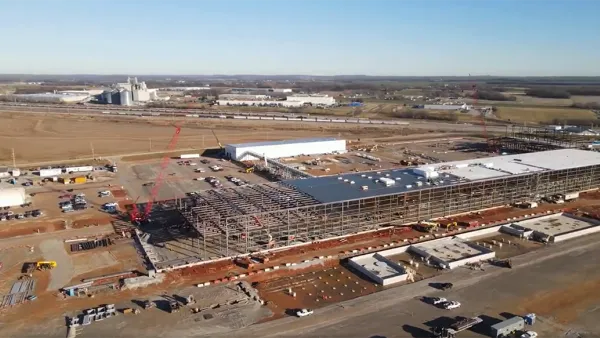Dive Brief:
- A New York bill named after a construction worker who died at the age of 22 seven years ago would heavily raise fines for criminal charges stemming from jobsite deaths.
- Carlos' Law, if signed, would allow courts to decide restitution from employers or supervisors with minimum fines of $300,000 for misdemeanors and $500,000 for felonies in criminal cases surrounding construction deaths. The bill has already passed through the state’s legislature and landed on Gov. Kathy Hochul's desk after the State Assembly passed it June 2.
- “This bill increases punitive measures so that corporations and their agents who ignore or fail to follow safety protocols and procedures and put workers at risk are less likely to write off serious workplace injuries as a minimal cost of doing business, and more likely to give workplace safety the serious attention it requires,” Carlos’ Law reads.
Dive Insight:
“Carlos' Law is important because it holds employers accountable who willfully disregard workers' safety and as a result, a worker loses their life,” Charlene Obernaur, executive director of the New York Committee for Occupational Safety and Health, told Construction Dive in an email.
A recent report from NYCOSH, an independent labor group, found Latino construction workers were disproportionately likely to die on the job, accounting for 18% of fatalities in 2020, even though they comprise just 10% of the population. Almost 80% of worker deaths that year were on non-union jobsites.
Carlos Moncayo, a nonunion, undocumented worker, died in 2015 in a trench collapse that a police officer with a construction background noted had not been properly reinforced, the New York Times reported. Prosecutors argued that supervisors ordered Moncayo into the trench because the project lagged behind schedule.
Ultimately, general contractor Harco Construction was found guilty of manslaughter, criminally negligent homicide and reckless endangerment. It was sentenced to pay $10,000 — the state-imposed limit on corporate penalties. Cyrus R. Vance Jr., then-district attorney, called the fine “Monopoly money” for Harco.
According to the text of the bill, since the Occupational Safety and Health Act of 1970, about 80 of 400,000 worker deaths have been prosecuted, with only a dozen or so resulting in criminal charges.
Carol Sigmond, partner at New York City-based law firm Greenspoon Marder LLP, said that the bill could become a deterrent, but the largest effect would be arming prosecutors to go after these cases.
“What [increased fines] may actually may do is encourage the DA’s to investigate these cases better and to clean these places up,” Sigmond said, adding that investigators who are knowledgeable about construction safety would be a much-needed addition to district attorneys’ offices.
Larger impact
In a letter to Hochul shared with Construction Dive, Louis J. Coletti, president and CEO of the Building Trades Employers' Association, commended the concept behind the bill, but called for revisions. Namely, Coletti voiced concerns about the impact of minimum requirements and stronger, more specific language in the bill, which could put more risk on small, minority- and women-owned businesses.
Asked what the bill could mean for New York builders, Sigmond said, “If you’re a union contractor in New York state, not a lot. You’re probably not going to have these kinds of accidents, to be candid.”
“For the smaller, fly-by-night guys, this’ll be more serious,” she said.














